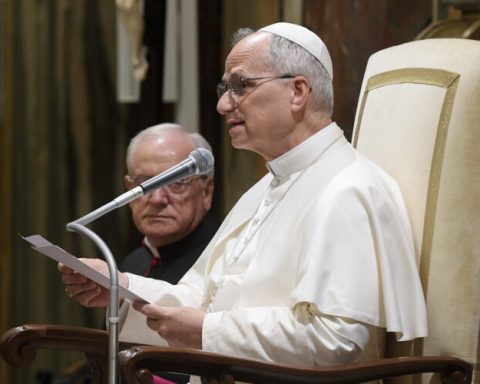Before the British court examining its demand for the extradition of Julian Assange, the United States on Wednesday called into question the risk of suicide and gave guarantees about the treatment that the WikiLeaks founder will receive if he is handed over.
Claimed by a massive leak of classified documents, the 50-year-old Australian faces a 175-year prison sentence in the United States, in a case described as an attack on press freedom by his followers.
At this hearing, which is scheduled to last until Thursday, the United States hopes to convince the High Court of London to annul Judge Vanessa Baraitser’s January decision. The magistrate had rejected the extradition demand based on the risk that Assange would commit suicide if he was imprisoned in a US facility.
On Wednesday, the attorney representing the US government, James Lewis, said that Assange had “no history of serious and lasting mental illness” and said that even the experts in his defense found him only “moderately depressed.”
According to him, the WikiLeaks founder had “every reason to exaggerate his symptoms” and warned of a decision that would be based on predictions made in “a crystal ball” about his fate in case of extradition.
Lewis insisted that the US justice system will guarantee that Assange receives the necessary clinical and psychological care and that he can apply to serve his possible sentence in Australia, his country of origin.
And he also assured that he will not be subjected to special measures nor will he be detained in the dreaded ADX Florence very high security penitentiary in Colorado, known as “Alcatraz of the Rockies.”
Assange’s defense responded that these guarantees did not prevent him from being held in a similar facility and repeated that the United States has no “reliable basis” to appeal the refusal of extradition.
Held for two and a half years in the Belmarsh high security prison, east London, after a long confinement in the Ecuadorian embassy, Assange participated in the hearing by videoconference.
This appeal to the High Court in London is one of Washington’s last recourse, which, if it fails, could only go to the British Supreme Court. In the event of victory, it will not be the end of the case, which will be forwarded to another court that must rule on the merits.
‘Very thin’
Before the start of the hearing, several dozen people gathered in front of the High Court in London to support Assange.
“He did nothing wrong from a legal, ethical or moral point of view,” Sadia Koknie, 40, who was present to support the Australian militant, told AFP.
“He was imprisoned in disgusting conditions (…). He should not be here and what he experienced is totally ridiculous,” he added.
Assange, who has the support of numerous press freedom defense organizations, is wanted by the United States for espionage following the publication of some 700,000 secret military and diplomatic documents.
He was arrested by British police in April 2019, after spending seven years in the Ecuadorian embassy in London, where he took refuge when he was free on bail. He feared extradition to the United States or Sweden, who claimed him for rape, charges that have since been dropped.
It all depends on whether the British justice “will extradite a journalist to a country that made a plot to assassinate him,” Stella Moris, Assange’s partner, estimated before the hearing, “very concerned” after seeing him “very thin” in prison on Saturday.
“I hope the court will put an end to this nightmare,” he said.
Assange is the subject of a process launched during the presidency of Donald Trump. Under the presidency of Barack Obama, who had Joe Biden as vice president, the American justice had resigned to act against the founder of WikiLeaks.
But Biden’s election to the White House does not appear to entail the turnaround in the case that Assange supporters had hoped for.
Several organizations for the defense of human rights and freedom of the press, such as Amnesty International, Human Rights Watch and Reporters Without Borders, in mid-October urged the US attorney general to abandon the measures.









